Can You Stucco Over Brick? Pros, Cons, & How To
Author: Omar Alonso | Editor: Omar Alonso
Review & Research: Jen Worst & Chris Miller
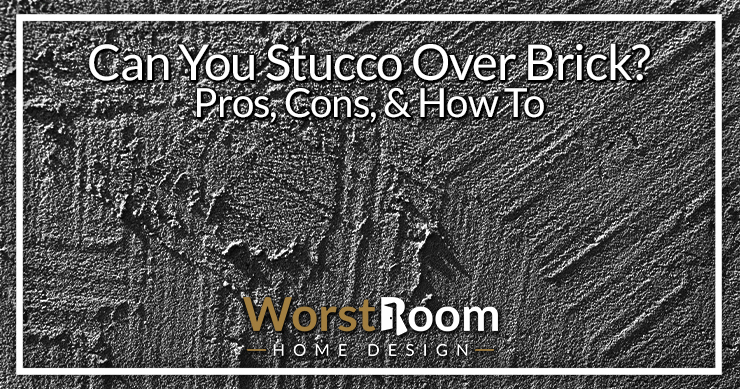
Stucco, a versatile and durable surface material, has gained popularity as an exterior renovation choice for homeowners. A common query arises, can you stucco over brick? The answer is yes! In most cases, stucco can be directly applied to brickwork, transforming the appearance of your home while offering benefits such as mold, termite resistance, and fire protection.
However, it's crucial to understand the necessary preparations and potential challenges associated with this process.
Read on for a detailed answer to the burning question and find the pros and cons of stuccoing over brick. Also, you will learn how to stucco over brick.
So, Can You Stucco Over Brick?
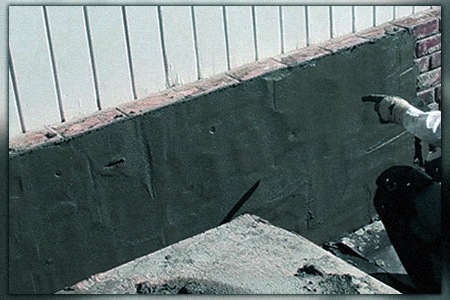
In most cases, most types of stucco can be directly applied over brick, but it is important to conduct a water absorption test to determine if the stucco will properly bond with the surface.
Preparations Required
Before stucco application begins, the brick surface must be carefully prepared to ensure proper bonding and durability of this type of house siding. Spritz some water onto the bricks and observe if it's absorbed quickly or beads up on the surface.
Clean the surface using a stiff-bristle brush to remove any loose debris. Wash with a mild detergent solution. If paint remains on the bricks after cleaning, you may need to use specialized paint removers designed for masonry surfaces.
After addressing these issues, repair any cracks or holes in the brickwork before starting with the stucco application.
Addressing Spalling Brick
Spalling occurs when moisture infiltrates the brick surface, causing the outer layers to peel or flake off. This is one of the challenges of placing stucco on a brick wall.
Begin by removing all loose and damaged pieces of brick using a chisel or scraper tool. Next, clean the exposed surfaces thoroughly to remove dirt, debris, and contaminants that could prevent proper bonding between the materials.
Afterward, you may need to apply a filler product or patching compound specifically designed for repairing bricks. Allow these repairs to dry fully before proceeding with the stucco application process.
Tools Needed For Applying Stucco
Having the right tools on hand is crucial before you begin applying the stucco. A hawk and trowel are essential for applying and smoothing out the stucco mixture on the brick surface.
You will also need a brush specifically designed for applying bonding agents like acrylic or latex onto your brick exterior. This helps create a strong bond between the stucco and underlying bricks for long-lasting durability.
Flotas come in handy for achieving that desired smooth finish while removing any excess material from ridges or grooves formed during application.
Lastly, consider investing in some stucco mesh that can provide extra reinforcement against potential cracks or structural concerns.
Pros & Cons of Stuccoing Over Brick
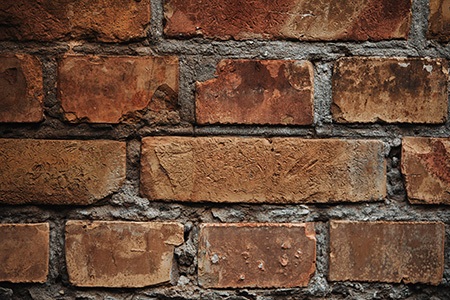
Can you stucco over brick? Yes, but stuccoing over brick has its merits and demerits you should know about:
Advantages
Stucco gives homes an updated and modern look, adding curb appeal and increasing the property's market value. It is naturally resistant to mold, termites, and fire, making it an excellent choice for homeowners who want to protect their investments.
Stucco can last up to 50 years when properly applied over brick, which is longer than other exterior finishes like siding.
Another reason homeowners choose stucco over brick is because it comes in different textures and colors. This allows them to create custom designs according to their taste.
Disadvantages
Covering brick with stucco has some downsides, too. The cost of labor associated with stucco can be more expensive than other alternatives like siding.
The composition of stucco is not flexible and may crack due to natural settling or shifts in the foundation.
Moisture retention is another concern regarding stucco. Routine maintenance is required to prevent water damage or weathering over time.
Lastly, removing stucco from brick can be a tedious and labor-intensive process that could cause structural damage if used as a cover-up for pre-existing damage.
How to Stucco Over Brick Exterior
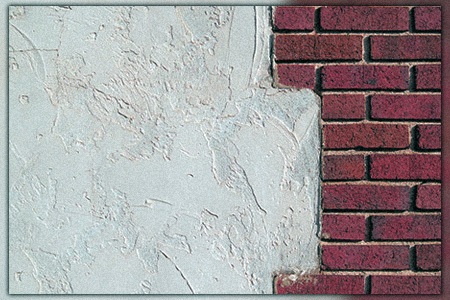
To successfully stucco over a brick exterior, proper preparations, tools, and techniques are required. Below are steps to achieving a flawless finish.
Steps for Stuccoing Over Brick
The first step is to ensure that the surface of the brick is clean and free from contaminants such as dirt, paint, or other debris.
Next, a bonding agent must be applied to help the stucco adhere to the brick more effectively. Mixing and applying stucco requires precision and attention to detail.
However, there are potential problems with stucco over brick that homeowners need to consider carefully before proceeding.
Applying a Bonding Agent
To ensure that stucco adheres properly to a brick surface, it is essential to apply a bonding agent first. A concrete bonding agent works well for this purpose and should be applied evenly across the entire brick surface using a brush or roller.
The bonding agent creates a seal over the brick and allows the stucco to bond securely.
Properly applying a bonding agent can make all the difference in getting great results from your stucco project. Without it, you risk poor adhesion, leading to cracks and other structural problems.
When preparing your surface for stucco application, remember that thorough cleaning, drying, and repairing any underlying damage is critical before adding any coating.
Mixing & Applying Stucco
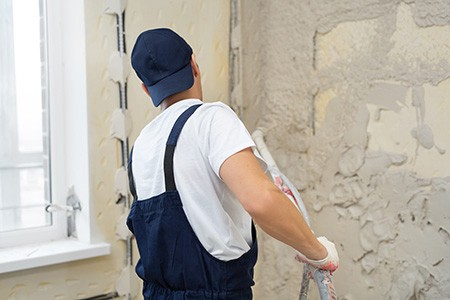
Can you stucco over brick? Yes, but you need to follow the steps precisely and in the right order. The first step is to create the right consistency of stucco by mixing it properly with water.
It's important to follow manufacturer guidelines for mixing ratios, as adding too much or too little water can compromise the bond quality between stucco and brick.
When applying stucco, it's crucial to ensure that each layer is applied evenly and thoroughly, covering all areas of the surface. This ensures that moisture does not seep into gaps or uncoated spaces, which could cause structural concerns down the road.
Applying multiple layers also helps strengthen the bond between brick and stucco, ensuring longevity for your home exterior.
Potential Problems With Stucco Over Brick
One potential problem with stucco over brick is poor adhesion. If the surface of the brick is contaminated with paint, dirt, or other substances, it may not bond properly with the stucco.
This can cause cracking and other damage to occur in the future. It's one of the biggest problems with this on the exterior or inside as a modern drywall texture.
Another potential problem is moisture issues. Stucco is naturally porous and can absorb water, which could result in damage over time if not addressed correctly. To mitigate this risk adequately, moisture barriers are required when applying stucco to brick exteriors.
Poor Adhesion & How To Avoid It
Poor adhesion is common when stuccoing over brick, and various factors can cause it. One of the main causes of poor adhesion is contaminants on the brick surface, such as paint and dirt.
To avoid this, it's important to thoroughly clean the surface before applying stucco. Also, proper brick surface preparation is crucial for the stucco to last.
Applying a bonding agent can also help ensure proper adhesion. Stucco should only be applied to clean walls where all dust and contaminants have been removed.
It's important to remember that misting the wall every few hours during drying can reduce potential flaws or cracks that could lead to poor adhesion in the future. Can you put stucco over brick? Yes, and all of these tips will ensure the best outcome.
Moisture Issues & How To Prevent Them
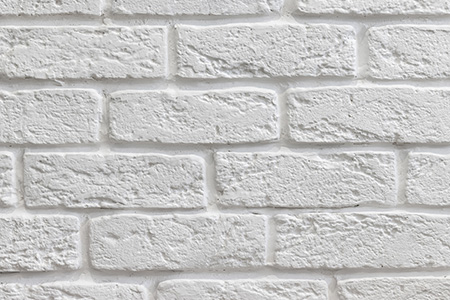
Moisture is one of the biggest enemies of stucco applied over brick, causing cracking and severe damage to the structure. However, with proper preparation and maintenance, it's possible to prevent moisture issues from occurring.
Firstly, applying a moisture barrier product as an underlayment is essential before starting the stuccoing process.
Secondly, regular cleaning can help prevent dirt buildup that could trap moisture within the stucco layer. This is important as an exterior or as an interior drywall alternative.
Finally, minimizing contact between your home's exterior surfaces and ground-level pool drainage can also significantly reduce moisture issues. Waterproofing around foundations will help keep ground-level pools from soaking into porous materials like brick or stucco walls.
Structural Concerns & How To Address Them
When applying stucco over brick, taking care of any underlying structural issues first is essential. Stucco may not adhere well to a surface that is uneven or deteriorating, so a professional must inspect the brick before applying stucco.
If your home has significant cracks, bulges, or other defects in the brickwork, it could indicate serious underlying issues with your home's foundation.
Another crucial aspect of preventing structural concerns when stuccoing over the brick is ensuring proper water management. Water damage can cause severe structural concerns, including rotting wood frames and weakened walls.
To prevent water damage from occurring after applying stucco, ensure that all flashing around doors and windows is installed correctly to divert rainwater away from the exterior wall surfaces.
Can You Stucco Over Brick? You Sure Can
Stuccoing over brick can be a great option for homeowners looking to give their building a fresh look. However, it's important to properly prepare the surface and address any underlying issues before applying the stucco.
While stucco has many advantages, like its resistance to mold and termites, there are also potential disadvantages, such as moisture problems and costly labor expenses. Make sure you know the whole deal before you start. So can you stucco over brick? Yes, but make sure it’s right for you.



